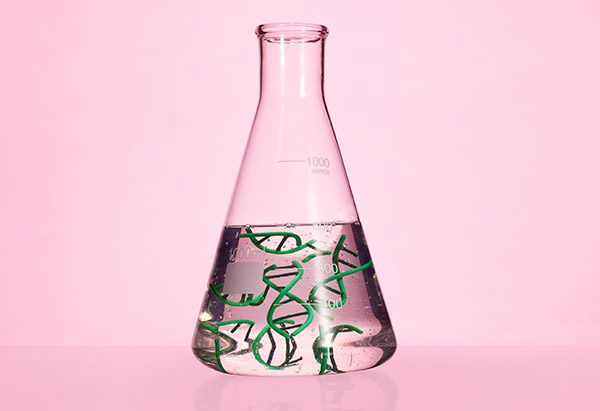When Genetic Testing Can Be Dangerous to Your Health
DNA research has led to cutting-edge breakthroughs in how we detect cancer risk. But when doctors can't keep up with the science, the results can be perilous.

Photo: Adam Voorhes
Since the human genome was fully sequenced a decade ago, research in the field of genetics has advanced at breakneck speed. Today tests are available to find a genetic link for more than 2,500 diseases (ten years ago, that number was around 900). Doctors, in turn, have eagerly embraced the emerging technology; with a blood test they can help patients determine their risks for potentially treatable and preventable conditions, including many types of cancer. The only problem: Many doctors have little to no formal training in genetics, and that lack can lead to devastating mistakes.
A recent report from ARUP Laboratories, a national pathology lab affiliated with the University of Utah, found that over an 11-month period in 2010, clinicians ordered the wrong genetic test nearly a third of the time. A 2012 study in The Cancer Journal reviewed dozens of cases in which doctors without specialized training made similar mistakes: ordering wrong or unneeded genetic tests, misinterpreting the results of correct tests, or failing to refer a patient to a genetic counselor even when there were key red flags, like a strong family history for a disease. In one case, a doctor's misunderstanding of a test resulted in a 41-year-old woman's having an unnecessary hysterectomy.
For Lupe Acosta, 47, a misinterpreted genetic test for breast cancer led her to have a second mastectomy she likely didn't need. In 2011 Acosta, a mother from a small college town on the outskirts of Los Angeles, had her blood tested for mutations in the two genes (BRCA1 and BRCA2) linked to hereditary breast and ovarian cancer. She'd already undergone a mastectomy to remove her left breast after being diagnosed with cancer of the milk ducts earlier that year; given that her mother had breast cancer, her oncologist wanted to see if the disease was inherited.
"When I found out the test results were positive, I panicked," says Acosta. For a second opinion, she turned to doctors at City of Hope Comprehensive Cancer Center in Duarte, California; it was there that she was connected with oncologist and geneticist Jeffrey Weitzel, MD, chief of the center's division of clinical cancer genetics.
Next: Discovering her uncertain results
A recent report from ARUP Laboratories, a national pathology lab affiliated with the University of Utah, found that over an 11-month period in 2010, clinicians ordered the wrong genetic test nearly a third of the time. A 2012 study in The Cancer Journal reviewed dozens of cases in which doctors without specialized training made similar mistakes: ordering wrong or unneeded genetic tests, misinterpreting the results of correct tests, or failing to refer a patient to a genetic counselor even when there were key red flags, like a strong family history for a disease. In one case, a doctor's misunderstanding of a test resulted in a 41-year-old woman's having an unnecessary hysterectomy.
For Lupe Acosta, 47, a misinterpreted genetic test for breast cancer led her to have a second mastectomy she likely didn't need. In 2011 Acosta, a mother from a small college town on the outskirts of Los Angeles, had her blood tested for mutations in the two genes (BRCA1 and BRCA2) linked to hereditary breast and ovarian cancer. She'd already undergone a mastectomy to remove her left breast after being diagnosed with cancer of the milk ducts earlier that year; given that her mother had breast cancer, her oncologist wanted to see if the disease was inherited.
"When I found out the test results were positive, I panicked," says Acosta. For a second opinion, she turned to doctors at City of Hope Comprehensive Cancer Center in Duarte, California; it was there that she was connected with oncologist and geneticist Jeffrey Weitzel, MD, chief of the center's division of clinical cancer genetics.
Next: Discovering her uncertain results



